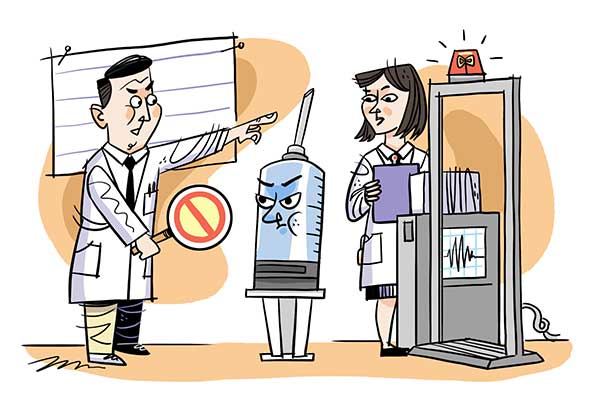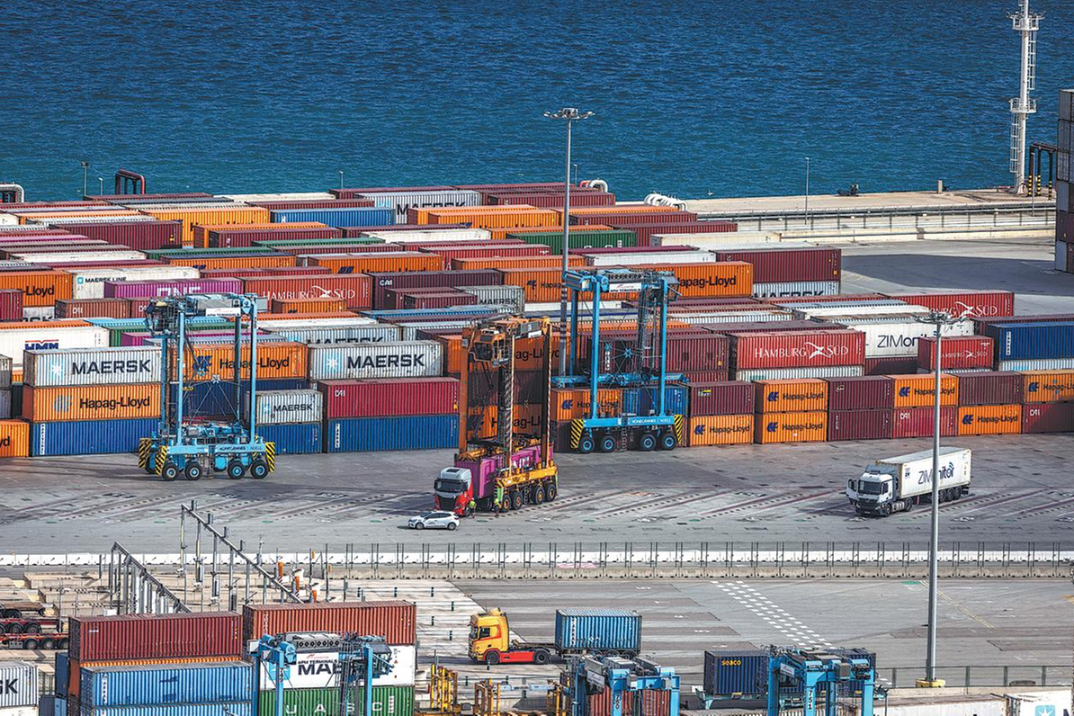Vaccine scandal teaches vital lessons


Editor's note: The Changchun Changsheng Bio-tech Company has become the target of public fury for falsifying production data and making substandard DPT (diphtheria-pertussis-tetanus) vaccines that are given to children. Three experts share their views with China Daily's Yao Yuxin on the issue and how should the vaccine sector win back public trust. Excerpts follow:
Fair competition among vaccine firms needed
The vaccine scandal involving the Changchun Changsheng Bio-tech Company is essentially different from the infant formula scandal of 2008. A systemic problem-monopoly leading to a lack of market competition-is one of the reasons of the vaccine scandal, while the inherent problems of the dairy product company led to the baby milk formula scandal. As is evident, the infant formula market is still more open than that for vaccines.
And owing to bureaucratic interventions and malfunctioning of markets, pharmaceutical companies have no incentive to upgrade their technologies.
Therefore, a proper relationship between the government and the market should be established and a favorable atmosphere for fair competition among vaccine manufacturers created so that health service providers and consumers can choose their own source of vaccines.
Wang Yue, a professor at the School of Medical Humanities, Peking University
Drug safety scandals tarnish sector's image
On July 19 the Changchun company announced it will be fined about 3.44 million yuan ($506,282) for producing substandard DPT vaccines. Almost at the same time an employee-who was not happy with his new posting and pay-reported to the local drug watchdogs how the company had forged production records and produced adulterated rabies vaccines. But the fact that last year the company also got some subsidy from the local government made the punishment just a "symbolic" exercise. No wonder the company has so often crossed the red line of vaccine safety.
Therefore, it is important to put pharmaceutical companies that repeatedly violate the drug safety norms on the black list, and more strictly enforce the laws and regulations to ensure the vaccines are not only safe but also effective. In fact, vaccine companies that repeatedly violate the laws and regulations should have their production license cancelled.
Had the unhappy employee not exposed the Changchun company's wrongdoings, the scandal as well as the loopholes in the supervision system would have remained hidden.
Therefore, third parties such as the media and consumer groups should be encouraged to oversee the functioning of these companies so that the public can know the truth about the vaccine companies. And these companies and the corrupt supervisory officials who collude with them to undermine public health and safety should get appropriate punishments, because otherwise the whole vaccine sector's image would be tarnished.
Liu Peng, a professor at the School of Public Administration and Policy, Renmin University of China
Supervisors must get professional training
The quality management departments and their officials can play a big role in monitoring vaccine safety and effectiveness. But since vaccine regulation is a highly specialized field, it needs regulators with special knowledge of preventive medicines, medical care, public management and law. But their number is low in China compared with those in advanced countries.
Vaccine supervisors should therefore undergo special training so they can better perform their duties. Also, the authorities must establish a system for selecting supervisors from research institutions, universities and the vaccine industry.
The vaccine scandal involving the Changchun Changsheng Bio-tech Co should be a wake-up call for all, and prompt the authorities to put more emphasis on the quality of vaccines and fair competition in the market.
Moreover, drug safety laws should be more strictly enforced to make sure no substandard medicine enters the market.
Song Hualin, a professor at the School of Law, Nankai University


































